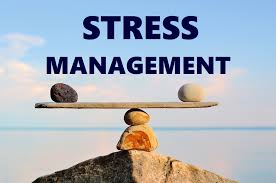Stress is a natural part of life, but when it becomes overwhelming or chronic, it can significantly impact your physical and mental well-being. Managing stress in a healthy way is essential for maintaining a balanced life, preventing long-term health complications, and improving overall quality of life. In this guide, we’ll explore the causes and effects of stress, how to identify it, and strategies to cope effectively—including traditional and innovative solutions like stem cell therapy.
Overview
What is stress management?

Stress management involves recognizing stressors, understanding their impact on your body and mind, and implementing techniques to reduce or handle stress effectively. While stress itself isn’t inherently bad (it can sometimes motivate us), chronic or poorly managed stress can lead to serious health issues.
Healthy stress management practices aim to:
- Improve emotional resilience.
- Reduce physical symptoms like tension and fatigue.
- Boost overall mental clarity and emotional stability.
How Does Stress Affect Your Physical and Mental Health?
Stress can manifest in various ways, affecting both the mind and body.
Physical Effects of Stress:
- Cardiovascular issues: Prolonged stress can increase blood pressure and heart rate, heightening the risk of heart disease.
- Weakened immune system: Chronic stress suppresses immune function, making you more susceptible to illnesses.
- Digestive problems: Stress can cause stomach pain, indigestion, or conditions like irritable bowel syndrome (IBS).
- Sleep disturbances: Insomnia or poor-quality sleep often stems from stress.
Mental Health Effects of Stress:
- Anxiety and depression: Persistent stress can lead to or exacerbate these conditions.
- Difficulty concentrating: Stress reduces cognitive function, making it hard to focus or make decisions.
- Emotional instability: Irritability, anger, and mood swings often result from unmanaged stress.
Risks or Complications of Poorly Managed Stress
Failing to address chronic stress can lead to:
- Chronic health conditions: Hypertension, diabetes, and heart disease.
- Mental health disorders: Severe anxiety, panic attacks, and clinical depression.
- Reduced quality of life: Ongoing fatigue, burnout, and reduced productivity.
- Relationship strain: Poor stress management can lead to conflicts and emotional withdrawal.
Ways to Identify Stress
Stress isn’t always obvious, so recognizing the signs is the first step to managing it:
- Physical symptoms: Persistent headaches, muscle tension, fatigue, or changes in appetite.
- Emotional symptoms: Feeling overwhelmed, irritable, or unusually tearful.
- Behavioral changes: Procrastination, social withdrawal, or reliance on unhealthy coping mechanisms like overeating or substance use.
- Cognitive symptoms: Racing thoughts, forgetfulness, or difficulty concentrating.
Ways to Cope with Stress
1. Practice Relaxation Techniques
- Meditation and mindfulness: These help calm the mind and reduce anxiety.
- Deep breathing exercises: Activating the body’s relaxation response can lower stress levels.
2. Stay Active
- Regular physical activity releases endorphins, which are natural stress relievers.
3. Maintain a Healthy Diet
- A balanced diet rich in whole foods supports brain and body function, improving stress resilience.
4. Build a Support System
- Sharing your feelings with trusted friends, family, or therapists can help alleviate stress.
5. Time Management
- Organizing your day with priorities and realistic goals can prevent overwhelm.
6. Engage in Hobbies
- Creative outlets or recreational activities can distract from stress and boost your mood.
When to Call the Doctor
It’s time to seek professional help if:
- Your stress symptoms persist despite self-care efforts.
- You feel unable to manage your emotions or responsibilities.
- You experience severe symptoms like panic attacks or thoughts of self-harm.
Medications for Stress Management
In some cases, medication may be necessary to manage stress, particularly when it contributes to anxiety or depression. Common medications include:
- Antidepressants: To balance mood and alleviate symptoms of stress-related depression.
- Anti-anxiety drugs: For managing acute or chronic anxiety caused by stress.
- Sleep aids: For stress-induced insomnia.
Always consult a healthcare provider before starting any medication.
Stem Cell Therapy for Stress Management
Stem cell therapy is an innovative approach to stress management, focusing on repairing the body at a cellular level. Stress damages various systems in the body, including the brain and immune system. Stem cell therapy offers:
- Regeneration: Stem cells have the potential to repair stress-damaged tissues, especially in the brain and cardiovascular system.
- Reduction of Inflammation: Chronic stress leads to inflammation, which stem cells can help reduce, improving overall health.
- Improved Neuroplasticity: Stem cells support brain health, enhancing resilience to stress and preventing cognitive decline.
Stem Cell Product for Stress Management
When stress takes over, it doesn’t just affect your emotions, it impacts your entire body. Chronic stress can weaken your immune system, drain your energy, disrupt your sleep, and leave you mentally and physically exhausted. That’s where Faforon, a revolutionary stem cell product comes in.

Faforon is a 100% natural, plant-based stem cell product designed to restore balance and vitality in the body. By working at the cellular level, it helps the body repair, rejuvenate, and recover from the harmful effects of stress.
How Faforon Supports Stress Management
- Cellular Regeneration
- Boosts Energy Levels
- Improves Mental Clarity and Focus
- Strengthens Immunity
- Balances Hormones
- Reduces Inflammation
Why Choose Faforon for Stress Management?
Faforon is more than just a supplement—it’s a holistic solution for managing stress and its effects. Its stem cell technology works from within, addressing the root causes of stress-related issues rather than just masking the symptoms.
By incorporating Faforon into your daily routine, you’ll experience:
- Enhanced resilience to stress.
- Improved physical and mental health.
- Greater energy and focus to handle life’s challenges.
Conclusion
Stress is an inevitable part of life, but it doesn’t have to control you. By identifying your stressors and adopting healthy coping mechanisms, you can take charge of your well-being.
If stress feels unmanageable, don’t hesitate to reach out to a healthcare professional. Managing stress is not just about surviving—it’s about thriving.



